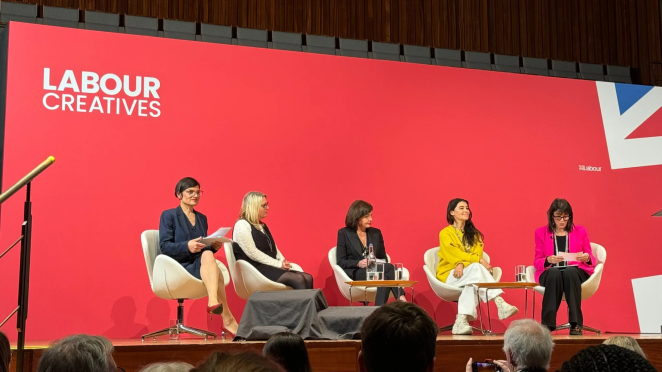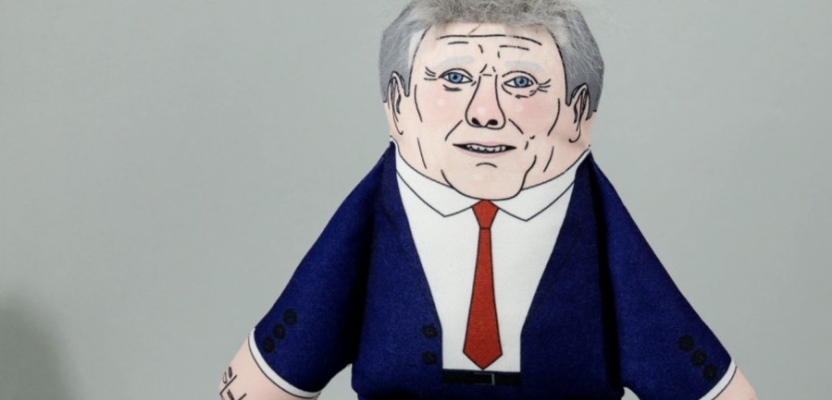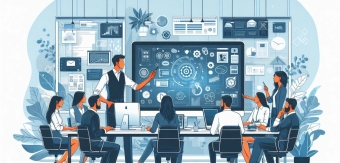As the UK stands on the precipice of a potential political shift, with parliament set to return from recess in just a couple of short weeks with a brand-new government at the helm, the creative industries are poised to undergo transformative changes under the promised policies of a Labour government.
The Labour Party’s Sector Plan for the Arts, Culture, and Creative Industries paints a picture of a future where creativity not only thrives but also becomes a cornerstone of national economic and cultural renewal. But what does this mean for the creative sector over the next five years?
A Renewed Commitment to Growth
Labour’s manifesto is unequivocal in its commitment to growing the creative industries, promising to make them central to a decade of national renewal and a key driver of economic growth. This ambitious vision is rooted in the belief that the creative sector, already contributing £125 billion to the UK economy and employing 2.4 million people, holds even greater potential.

Culture Secratary Lisa Nandy
The Labour government pledges to work closely with industry leaders to remove barriers to growth, particularly by addressing skills shortages and ensuring that creative education is accessible to all. By reforming the Apprenticeship Levy into a more flexible ‘Growth and Skills Levy’ and establishing Technical Excellence Colleges, Labour aims to equip the future workforce with the necessary skills to sustain the sector’s expansion.
Practicalities and Promises: A Realistic Outlook?
While the manifesto is rich with promises, the practicalities of implementation remain a point of concern within the industry. Fergus McCallum, CEO at TBWA/MCR, reflects a cautious optimism:
“The Creative Industries should be optimistic if the Government genuinely builds on its manifesto promise to ‘grow this industry, for its economic benefit and the enrichment of lives across the country’. But the practicalities of how they’re going to achieve this aren’t very clear.”
This sentiment resonates with many in the sector, particularly as Labour also introduces a potentially game-changing “right to switch off” policy. Initially successful in countries like France, Belgium, and Ireland, this policy, if implemented effectively, could revolutionize work-life balance in the creative industries. However, as McCallum warns, the success of this initiative hinges on its meaningful execution:
“My fear is that, somewhat like the IPA’s Pitch Positive Pledge, it will set out with the very best of intentions. But all it takes is a few people not to play ball, and the system fails.”
Protecting Creators and Creative Work
In a world where emerging technologies such as AI are rapidly reshaping industries, Labour’s commitment to protecting intellectual property and supporting creators is crucial. The party’s sector plan emphasizes the importance of maintaining the UK’s strong copyright regime while also exploring the potential of AI to unlock new creative frontiers.

This dual focus on protection and innovation is vital for ensuring that the creative industries can continue to produce high-quality, original content that competes on a global stage. The creative sector is, after all, not just about economic output but also about safeguarding the human-centered creativity that has long been the UK’s hallmark.
Supporting SMEs and Creative Spaces
Labour’s plan also highlights the importance of supporting small and medium-sized enterprises (SMEs) within the creative industries, which are often the lifeblood of innovation and local cultural identity. The proposed “Space to Create” initiative, which aims to protect and develop cultural infrastructure across the UK, is a testament to Labour’s commitment to fostering a fertile environment for creative businesses to grow.
This initiative, along with Labour’s plan to replace business rates with a fairer system, could provide much-needed relief to creative SMEs struggling with the rising costs of operation. By identifying and supporting cultural deserts—areas lacking in creative infrastructure—Labour aims to ensure that the benefits of a thriving creative sector are felt in every corner of the country.
A Future of Opportunity and Challenge
As Labour positions itself as the champion of the creative industries, the next five years could indeed see a renaissance in British arts, culture, and creative output. The party’s history of supporting the arts, from establishing the Arts Council of Great Britain to championing free entry to national museums, underscores its potential to deliver on these promises.

However, the road ahead is not without challenges. As McCallum wisely notes, the balance between producing brilliant creative work and managing client expectations, while adapting to the rapid pace of technological change, will require a nuanced approach:
“If Labour’s ‘right to switch off’ is right. And it is. It needs to be framed in a way that can be commercially viable for business AND also protects the wellbeing of our people. That can only be done by understanding the tension that exists between producing brilliant creative work, client expectations and the speed of competitor change. And all parties must be held to account. If they can crack that, hats off to them and they will make a difference in the next 5 years.”
In conclusion, while Labour’s vision for the creative industries is bold and ambitious, its success will depend on the party’s ability to navigate the complexities of policy implementation and industry collaboration. If they succeed, the next five years could indeed herald a new golden age for British creativity.







